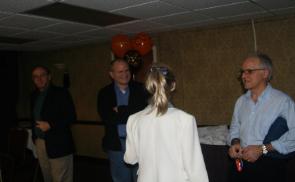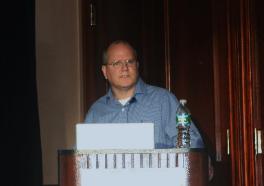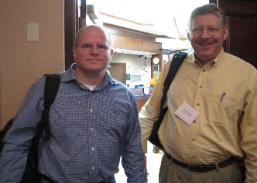Research authored by Dr. Underhill
Click the tab and a window will appear.
List of Publications via PubMed
(NIH National Library of Medicine)
List of Publications via PubMed
(NIH National Library of Medicine)
| T. Michael Underhill, Ph.D., research |
| ||||||||||||||||||||||||||||||||||||||||||||||||||||||||||||||||||||||||||||||||||||||||||||||||||||||||||||||||||||||||||||||||||||||||||||||||||||||||||||||||||||||||||||||||||||||||||||
| ||||||||||
The MHE Research Foundation, we comply with the HONcode standard for health trust worthy information: By the Health On the Net Foundation. Click
here to verify.# HON Conduct 282463 and is linked on the NIH National Library of Medicine, Directory of Health Organizations (SIS) website, as well as
the link for Patient Information on The Diseases Database a cross-referenced index of human disease, and the Intute: health & life sciences a free
online service providing access to the very best Web resources for education and research located in the UK
here to verify.# HON Conduct 282463 and is linked on the NIH National Library of Medicine, Directory of Health Organizations (SIS) website, as well as
the link for Patient Information on The Diseases Database a cross-referenced index of human disease, and the Intute: health & life sciences a free
online service providing access to the very best Web resources for education and research located in the UK
The MHE Research Foundation is proud to be working with the EuroBoNeT consortium, a European Commission granted Network of Excellence for
studying the pathology and genetics of bone tumors.
studying the pathology and genetics of bone tumors.
| This website is regularly reviewed by members of the Scientific and Medical Advisory Board of the MHE Research Foundation. All online submission forms use (SSL 3.0, RC4 with 128 bit encryption (High); RSA with 1024 bit exchange) Protocol with Privacy protection. Our goal is to make this website as safe and user friendly as possible. |


| The MHE Research Foundation is a participating member organization of the United States Bone and Joint Decade, (USBJD) & the USBJD Rare Bone Disease Patient Network |
| Email the webmaster: webmaster@mheresearchfoundation.org Materials on this website are protected by copyright Copyright © 2009 The MHE Research Foundation |
| This web page was updated last on 11/03/09, 4:0O pm Eastern time |
| Written consent must be obtained to attach web pages or the files attached to this website. Please email webmaster. |
Disclaimer: While many find the information useful, it is in no way a substitute for professional medical care.
The information provided here is for educational and informational purposes only. This website does not engage in the practice of medicine. In all cases we
recommend that you consult your own physician regarding any course of treatment or medicine.
The information provided here is for educational and informational purposes only. This website does not engage in the practice of medicine. In all cases we
recommend that you consult your own physician regarding any course of treatment or medicine.
The MHE Research Foundation is proud to be an affiliate of the Society For Glycobiology
Website 2009 conference abstract will be posted shortly.
Delineation of Regulatory Networks Underlying BMP Action in Chondrogenesis
Abstract 2005 MHE Conference
T. Michael Underhill1, Linsay M. Drysdale2, Konstantina Karamboulas1,
Matthew F. Cowan1, Jian Wang3, William A. Horton4 and Lisa M. Hoffman2
1 Department of Cellular and Physiological Sciences, University of British Columbia, Vancouver, BC, Canada, V6T 1Z3; 5C1 2
Department of Physiology, Faculty of Medicine & Dentistry, University of Western Ontario, London, ON,N6A 3 Robarts Research
Institute, 100 Perth Dr., London, ON, Canada, N6A 5K8;4 Shriner’s Children’s Hospital, 3101 SW Sam Jackson Park Road,
Portland, OR, USA, 97239
The BMP and GDF signaling pathways have well-established and essential roles within the developing skeleton in coordinating
formation of cartilaginous anlagen. However, identification of bona fide
targets that underlie the action of these signaling molecules in chondrogenesis has remained elusive.
Using microarray-based methods coupled with functional profiling, we have identified the retinoic acid (RA) synthesis enzyme,
Aldh1a2, as a principal target of BMP signaling—prochondrogenic BMPs or GDFs lead to attenuation of Aldh1a2 expression and
consequently, reduced activation of the retinoid signaling pathway.
Consistent with this, antagonism of retinoid signaling phenocopies BMP4 action, whereas RA inhibits the chondrogenic
stimulatory activity of BMP4. Further, moderate fold changes in endogenous retinoid signaling (< 4.5 fold) are sufficient to
regulate expression of the chondroblast phenotype.
In aggregate, these results establish a hierarchical relationship between the BMP and retinoid signaling pathways in
chondrogenesis.
These results will be presented along with additional findings that provide a molecular framework for understanding BMP action
in the chondrogenic program.
This research was supported by grants to T.M.U. from the Canadian Institutes of Health Research and the Canadian Arthritis
Network
Delineation of Regulatory Networks Underlying BMP Action in Chondrogenesis
Abstract 2005 MHE Conference
T. Michael Underhill1, Linsay M. Drysdale2, Konstantina Karamboulas1,
Matthew F. Cowan1, Jian Wang3, William A. Horton4 and Lisa M. Hoffman2
1 Department of Cellular and Physiological Sciences, University of British Columbia, Vancouver, BC, Canada, V6T 1Z3; 5C1 2
Department of Physiology, Faculty of Medicine & Dentistry, University of Western Ontario, London, ON,N6A 3 Robarts Research
Institute, 100 Perth Dr., London, ON, Canada, N6A 5K8;4 Shriner’s Children’s Hospital, 3101 SW Sam Jackson Park Road,
Portland, OR, USA, 97239
The BMP and GDF signaling pathways have well-established and essential roles within the developing skeleton in coordinating
formation of cartilaginous anlagen. However, identification of bona fide
targets that underlie the action of these signaling molecules in chondrogenesis has remained elusive.
Using microarray-based methods coupled with functional profiling, we have identified the retinoic acid (RA) synthesis enzyme,
Aldh1a2, as a principal target of BMP signaling—prochondrogenic BMPs or GDFs lead to attenuation of Aldh1a2 expression and
consequently, reduced activation of the retinoid signaling pathway.
Consistent with this, antagonism of retinoid signaling phenocopies BMP4 action, whereas RA inhibits the chondrogenic
stimulatory activity of BMP4. Further, moderate fold changes in endogenous retinoid signaling (< 4.5 fold) are sufficient to
regulate expression of the chondroblast phenotype.
In aggregate, these results establish a hierarchical relationship between the BMP and retinoid signaling pathways in
chondrogenesis.
These results will be presented along with additional findings that provide a molecular framework for understanding BMP action
in the chondrogenic program.
This research was supported by grants to T.M.U. from the Canadian Institutes of Health Research and the Canadian Arthritis
Network




| Photo's taken during the Third International MHE Research Conference |





